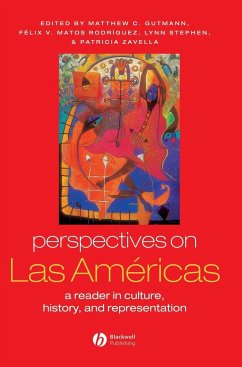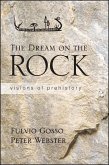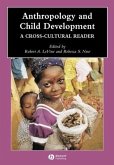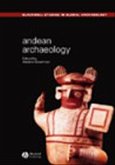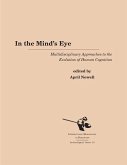In recent years, with the transformation of political economies and the influence of new theoretical frameworks, especially in cultural studies, older approaches to area studies have become increasingly inadequate. This landmark volume charts new territory by demonstrating the limits of neatly demarcating the regions of 'Latin America' and the 'United States'. Perspectives on Las Américas: A Reader in Culture, History, and Representation presents key readings that collectively examine the historical, cultural, economic, and political integration of Latina/os across the Americas. It is the editors' hope that this thoughtful and innovative collection will challenge the barriers between Latina/o Studies and Latin American/Caribbean Studies as approached by anthropologists, historians, and other scholars. Perspectives on Las Américas provides a core text in a variety of settings and will offer instructors, students, and interested readers both the theoretical tools and case studies necessary to rethink transnational realities and identities.
"Perspectives on Las Américas is a timely anthology for anyone teaching or studying the histories, cultures, and political economy of our hemisphere. With a broad geographic scope that unifies the Caribbean with North, South, and Central America, this volume splendidly explores the tensions among regions, states, and nations over global transnational processes. Its synthesis of the best scholarship in Latina/o Studies and Latin American Studies makes this a particularly appealing text, one I enthusiastically recommend." Ramó;n A. Gutiérrez, University of California, San Diego
"This refreshing and original collection synthesizes the current effervescence of Latin American and Caribbean studies, with a particular focus on cultures and identities. Importantly, it takes a hemispheric view, not stopping at the Rio Grande, but including in its scope the Latin Americanization of the US. A welcome addition." Olivia Harris, Goldsmith s College
"As a work designed for students Perspectives on Las Américas has proved to be a success with this reviewer. [...] The book brings together some splendid (previously published) articles by historians, anthropologists, sociologists and other scholars which address topics ranging from the gendered nature of labour in the Latin-American fruit-picking industry to Jennifer Lopez's bottom." Journal of Latin American Studies, 36 (2004)
" Perspectives on Las Américas provides a wealth of fascinating readings on a very diverse range of topics [...] It is [...] of undoubted utility as a source of worthwhile articles to assign to students." Journal of Latin American Studies, 36 (2004)
" Perspectives on Las Américas helps to dismantle Latino stereotypes by bringing out the profound national distinctions among immigrants, and by weaving together many common threads between U. S. Latinos and Latin Americans[.]" CENTRO Journal, XV No 2 (2003)
"This refreshing and original collection synthesizes the current effervescence of Latin American and Caribbean studies, with a particular focus on cultures and identities. Importantly, it takes a hemispheric view, not stopping at the Rio Grande, but including in its scope the Latin Americanization of the US. A welcome addition." Olivia Harris, Goldsmith s College
"As a work designed for students Perspectives on Las Américas has proved to be a success with this reviewer. [...] The book brings together some splendid (previously published) articles by historians, anthropologists, sociologists and other scholars which address topics ranging from the gendered nature of labour in the Latin-American fruit-picking industry to Jennifer Lopez's bottom." Journal of Latin American Studies, 36 (2004)
" Perspectives on Las Américas provides a wealth of fascinating readings on a very diverse range of topics [...] It is [...] of undoubted utility as a source of worthwhile articles to assign to students." Journal of Latin American Studies, 36 (2004)
" Perspectives on Las Américas helps to dismantle Latino stereotypes by bringing out the profound national distinctions among immigrants, and by weaving together many common threads between U. S. Latinos and Latin Americans[.]" CENTRO Journal, XV No 2 (2003)

